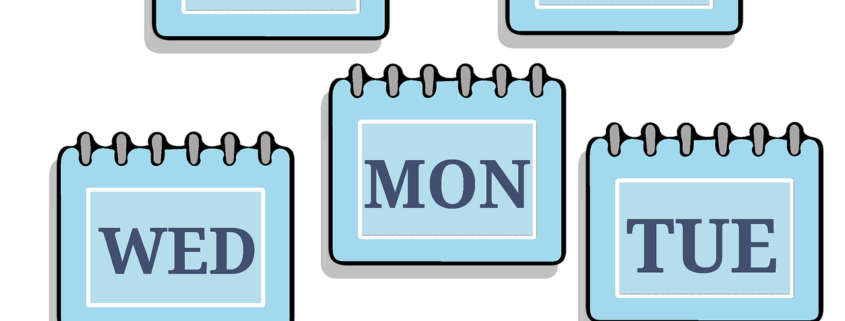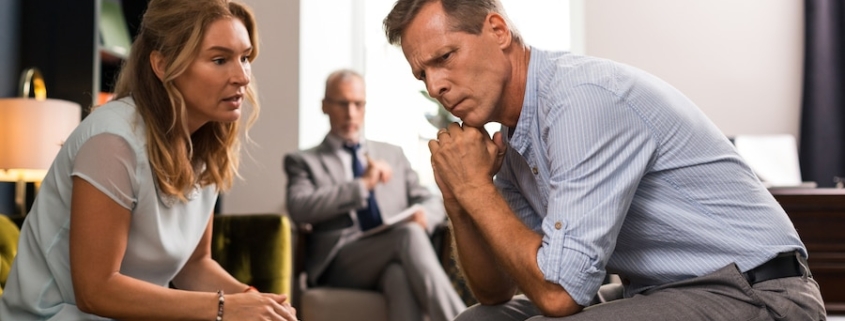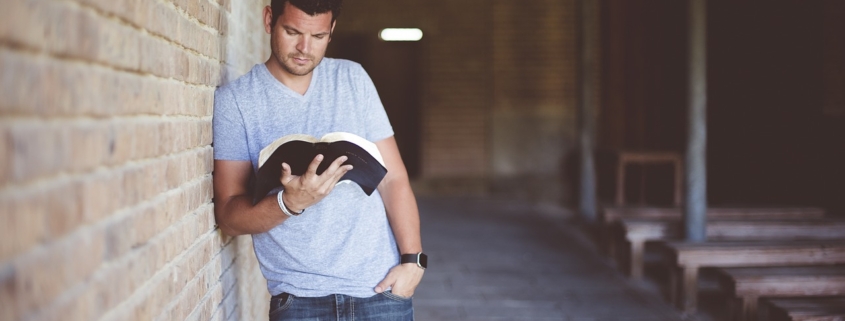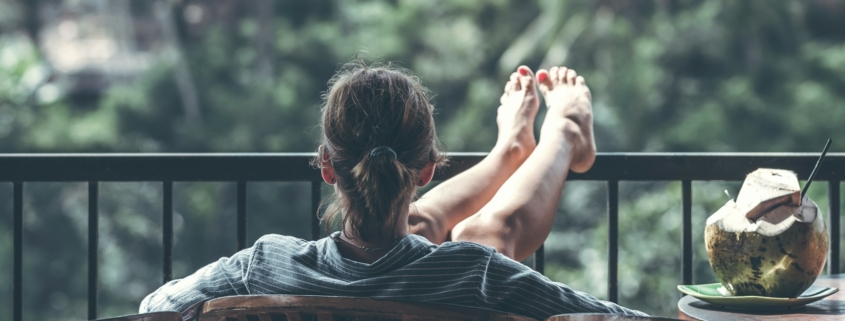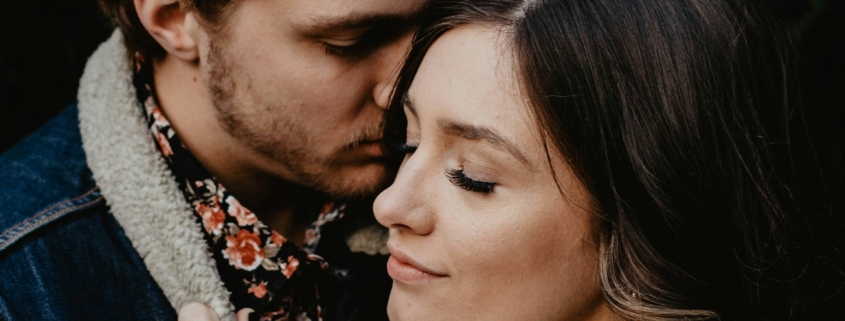Alaska’s rugged landscape offers more than just breathtaking natural beauty; it provides a serene backdrop for individuals seeking to heal from addiction. For couples battling substance abuse, the journey can be particularly challenging. However, couples rehab in Alaska offers a unique opportunity for partners to rebuild their lives together while overcoming addiction. In this guide, we will explore the various options for couples seeking rehabilitation in Alaska, highlighting programs, success rates, and what makes these facilities stand out. Whether you are an individual looking for help, a concerned family member, or a healthcare professional, this comprehensive resource will answer your questions and provide actionable information.
Alaska Couples Addiction Treatment Helpline: (888) 500-2110
Why Couples Rehab in Alaska?
Choosing to go through addiction recovery with your partner offers numerous benefits. Addiction not only strains individual lives but also affects relationships. Engaging in treatment together allows couples to:
- Support each other throughout the recovery process
- Address underlying relationship issues alongside substance abuse
- Build healthier communication patterns
- Establish a sober, unified future together
Alaska offers a distinct setting that combines wilderness serenity with access to experienced professionals. For couples seeking substance abuse treatment for couples in Alaska, the peaceful environment can be conducive to healing both the mind and body.
Types of Couples Drug Rehabilitation Programs in Alaska
Couples rehab centers in Alaska offer a range of treatment options tailored to fit the needs of partners facing addiction. Below are some of the common rehabilitation programs available.
1. Inpatient Couples Rehab
Inpatient rehab programs require couples to stay at the facility full-time for a structured, intensive inpatient treatment program. This type of treatment is ideal for couples with severe addiction issues or those needing medical detox. Inpatient care provides:
- 24/7 supervision and medical support
- Individual and joint therapy sessions
- Group therapy
- Holistic therapies like yoga, mindfulness, and art therapy
This immersive environment allows couples to focus on recovery in a controlled, supportive setting. For those dealing with severe addiction, couples rehab centers specializing in addiction in Alaska provide the necessary structure to foster recovery.
2. Outpatient Couples Rehab
For couples who cannot commit to full-time residential treatment, outpatient rehab offers flexibility. These programs allow participants to continue living at home while attending therapy sessions and meetings. There are two primary forms of outpatient care:
- Partial Hospitalization Programs (PHP): Intensive day programs that require participants to attend several hours of therapy daily but return home at night.
- Intensive Outpatient Programs (IOP): Sessions held several times per week, allowing participants to maintain regular responsibilities while receiving treatment.
Outpatient programs can be effective for couples with mild to moderate addiction or those transitioning from inpatient care. Couples therapy for addiction treatment in Alaska is a key feature of outpatient services, enabling partners to strengthen their relationships while recovering.
3. Couples Drug Detox Programs
Detoxification is often the first step in any rehabilitation program. For couples undergoing addiction treatment, it’s essential to have a medically supervised detox to ensure safety and manage withdrawal symptoms. In couples rehab in Alaska, detox programs include:
- Medical monitoring to handle withdrawal symptoms safely
- Medications to alleviate discomfort
- Therapy support during detox to address mental health needs
Detox can be physically and emotionally taxing, and having a partner by your side can help both individuals stay committed to recovery.
4. Dual Diagnosis Treatment
Many individuals struggling with substance abuse also have co-occurring mental health conditions such as depression, anxiety, or trauma. Couples counseling for drug and alcohol addiction in Alaska often includes dual diagnosis treatment, which addresses both substance abuse and mental health disorders simultaneously. By tackling these issues together, couples are more likely to achieve long-term recovery success.
5. Aftercare and Relapse Prevention
Once the initial stages of rehab are complete, aftercare and relapse prevention are essential for sustained recovery. Substance abuse treatment for couples in Alaska often includes aftercare planning, which may involve:
- Continued therapy and counseling
- Sober living arrangements
- Regular participation in support groups like Alcoholics Anonymous (AA) or Narcotics Anonymous (NA)
- Couples support groups focused on maintaining healthy, sober relationships
Building a strong relapse prevention plan ensures that couples have the tools they need to navigate life post-rehab, both individually and as partners.
Success Rates of Couples Rehab in Alaska
Understanding the potential outcomes of couples rehab can help set realistic expectations. Success rates for couples rehab in Alaska depend on several factors, including:
- The severity of addiction
- Duration and intensity of the treatment program
- The involvement of aftercare support
- The willingness of both partners to fully engage in therapy
Rehabilitation programs that focus on dual diagnosis, intensive therapy, and relationship-building often see higher success rates. Couples who work together to support one another through recovery are more likely to stay committed to sobriety, reducing the likelihood of relapse.
Factors that Contribute to Success:
- Therapeutic Commitment: Couples who are both committed to therapy and recovery have higher success rates.
- Personalized Treatment Plans: Tailored treatment addressing the specific needs of both individuals and their relationship increases effectiveness.
- Strong Aftercare Support: Long-term sobriety is often linked to ongoing support through aftercare programs and sober living environments.
Patient Testimonials from Couples Rehab in Alaska
Hearing real stories from couples who have successfully navigated rehab together can be incredibly inspiring. Below are a few testimonials from couples who found hope and recovery through relationship therapy for addicted couples in Alaska:
- Tom and Sarah: “We were at our breaking point, both with addiction and with each other. Rehab gave us the chance to not only get sober but rebuild our relationship. We’ve learned how to communicate better and support each other in ways we never could before.”
- Mike and Jen: “We entered rehab thinking it would be the end of our relationship. But the counselors in Alaska helped us see that addiction was a barrier we could overcome together. Today, we’re sober and stronger than ever.”
These success stories underscore the transformative potential of couples rehab, especially when partners are willing to work together toward healing.
Unique Features of Couples Rehab Centers in Alaska
Couples rehab programs in Alaska offer several unique features that set them apart from facilities in other locations. The combination of Alaska’s natural beauty and highly specialized treatment programs creates a healing environment conducive to recovery.
1. Natural Healing Environment
Alaska’s pristine wilderness—its mountains, forests, and lakes—provides an unparalleled backdrop for healing. The peaceful surroundings help couples step away from daily life stresses and focus on recovery. Many rehab centers incorporate outdoor activities like hiking, fishing, and mindfulness in nature as part of the therapeutic process.
2. Holistic Treatment Approaches
Many couples rehab centers in Alaska emphasize holistic treatments in addition to traditional therapy. These holistic options might include:
- Yoga and meditation
- Nutritional counseling and fitness programs
- Art and music therapy
- Mindfulness and stress management techniques
These treatments help couples heal physically, emotionally, and spiritually, allowing for a more well-rounded recovery experience.
3. Experienced and Compassionate Staff
Another critical aspect of successful rehab is the quality of care provided by the staff. Alaska rehab centers are known for employing highly trained professionals with expertise in addiction treatment, relationship counseling, and mental health. Their compassionate approach ensures that couples receive individualized attention and support.
How to Choose the Right Couples Rehab Center in Alaska
Choosing the right rehab center can be overwhelming, but certain factors can guide your decision. When looking for a couples rehab in Alaska, consider the following:
- Accreditation: Ensure the center is accredited by relevant bodies like The Joint Commission or CARF.
- Specialization in Couples Therapy: Look for facilities that specialize in couples counseling and addiction treatment.
- Program Options: The center should offer a range of services, from detox to inpatient and outpatient care.
- Location and Environment: The healing environment is critical. Choose a center in a peaceful, serene setting that promotes recovery.
- Support Services: Aftercare services and relapse prevention programs should be integral parts of the treatment plan.
Substance Abuse and Mental Health Statistics in Alaska
Substance Abuse:
- Opioid Overdose Deaths: Alaska has a high rate of opioid overdose deaths, significantly exceeding the national average.
- Alcohol-Induced Mortality: Alaska consistently ranks high in alcohol-induced mortality rates.
- Substance Misuse in Families: A significant portion of Alaska’s families are impacted by substance misuse.
Mental Health:
- Mental Illness Prevalence: A substantial percentage of Alaskans experience mental illness.
- Mental Health Service Use: While mental health service use is increasing, it remains below the national average.
- Suicide Rates: Alaska’s suicide rates are significantly higher than the national average.
Major Cities Involved:
- Anchorage: As the largest city in Alaska, Anchorage faces significant challenges related to substance abuse and mental health.
- Juneau: The state capital has a high prevalence of substance use and mental health issues.
- Fairbanks: This city also experiences a disproportionate burden of substance abuse and mental health problems.
Note: These statistics are based on data from various sources, including the Kaiser Family Foundation (KFF), the Alaska Department of Health, and the Substance Abuse and Mental Health Services Administration (SAMHSA). It’s important to consult the most recent reports for the latest information.
Additional Resources:
Please note that these statistics may have changed since the last update. I recommend checking the most recent data from reputable sources for the most accurate information.
Final Thoughts: Take the First Step Toward Recovery Together
Recovering from addiction is difficult, but doing so with a partner offers unique benefits and strengthens your bond in the process. Couples rehab in Alaska provides a supportive and structured environment where partners can heal together and build a sober, fulfilling life. If you and your partner are struggling with substance abuse, don’t wait—reach out to an Alaska rehab center today to start your journey toward recovery.
Start Recovery Today
If you or someone you love is battling addiction, now is the time to seek help. Contact a couples rehab center in Alaska today to learn more about the programs available and take the first step toward healing and recovery.
1. What is couples rehab, and how does it work in Alaska?
Couples rehab is a specialized form of addiction treatment designed for couples who are both struggling with substance abuse. In Alaska, couples rehab centers provide joint therapy sessions, individual counseling, and group therapy to help partners support one another through recovery. The treatment often includes a combination of detox services, inpatient or outpatient programs, and relapse prevention. By addressing both the addiction and the relationship dynamics, couples rehab in Alaska focuses on rebuilding healthy relationships while achieving sobriety.
2. What types of programs are available for couples rehab in Alaska?
In Alaska, couples can choose from a variety of rehab programs tailored to meet their unique needs, including:
- Inpatient rehab: A residential program where couples live at the facility for intensive therapy and treatment.
- Outpatient rehab: A flexible program that allows couples to attend therapy sessions while living at home.
- Partial Hospitalization Programs (PHP): A middle-ground option that provides intensive care during the day but allows patients to return home at night.
- Dual diagnosis treatment: A program for couples who have co-occurring mental health and substance abuse issues.
Each program is designed to help couples navigate recovery together in a supportive environment.
3. Is couples rehab effective in Alaska?
Yes, couples rehab can be highly effective, particularly when both partners are committed to recovery. In Alaska, couples who undergo rehab together benefit from:
- Learning healthier communication and conflict-resolution skills
- Addressing underlying relationship issues that may have contributed to addiction
- Supporting one another through the recovery process While success rates vary, couples rehab can strengthen relationships and improve the chances of long-term sobriety when combined with proper aftercare support.
4. What should couples look for when choosing a rehab center in Alaska?
When selecting a couples rehab center in Alaska, couples should consider several key factors:
- Accreditation: Ensure the facility is accredited by recognized bodies such as The Joint Commission or CARF.
- Program options: Look for centers that offer a range of treatments, from detox to inpatient and outpatient care.
- Specialized couples therapy: Ensure the facility has experience in treating couples with addiction.
- Environment: Alaska’s natural environment can provide a peaceful backdrop for recovery, so choosing a facility in a serene setting can enhance the healing process.
- Aftercare services: Aftercare is crucial for sustained recovery, so inquire about relapse prevention programs and follow-up care.
5. What are the benefits of couples rehab compared to individual rehab?
Couples rehab offers several unique advantages over individual rehab:
- Mutual support: Partners can encourage and motivate each other through the challenges of recovery.
- Addressing relationship dynamics: Couples therapy allows partners to work through relationship issues that may contribute to substance abuse.
- Stronger commitment: Engaging in the recovery process together can foster a deeper commitment to sobriety and to each other.
- Healing together: Couples rehab provides an opportunity for partners to heal not just individually but also as a unit, fostering a healthier relationship post-rehab.
6. How long does couples rehab typically last in Alaska?
The duration of couples rehab in Alaska varies depending on the severity of addiction and the specific needs of the couple. Typically:
- Detox programs last between 5-10 days, depending on the substances involved.
- Inpatient programs may range from 30 to 90 days.
- Outpatient programs can last several months, with varying levels of intensity.
- Aftercare and relapse prevention can continue for an extended period after formal treatment concludes.
Each couple’s situation is unique, and treatment plans are often customized to provide the best chance for long-term recovery.
7. Does couples rehab in Alaska accept insurance?
Most couples rehab centers in Alaska accept insurance, though coverage can vary based on the specific plan and provider. It’s essential to contact your insurance company to verify what addiction treatment services are covered. Many rehab facilities also offer financial counseling to help couples understand their insurance benefits and explore payment options such as sliding scale fees, payment plans, or financial aid.
8. Can one partner attend rehab if the other isn’t ready?
Yes, one partner can attend rehab even if the other isn’t ready. While couples rehab is designed for partners to recover together, it’s common for one person to seek treatment before the other is prepared. Individual recovery is still possible, and often, one partner’s progress in sobriety can encourage the other to eventually seek help. Additionally, rehab centers offer family and relationship counseling to support couples in which only one partner is undergoing treatment.
9. Are there aftercare options for couples after completing rehab in Alaska?
Yes, aftercare is an essential part of maintaining sobriety after completing rehab. Couples in Alaska can benefit from a variety of aftercare options, including:
- Ongoing couples therapy: Helps couples navigate post-rehab challenges and maintain healthy communication.
- Support groups: Groups like Alcoholics Anonymous (AA) and Narcotics Anonymous (NA) provide peer support for both individuals and couples in recovery.
- Sober living homes: Couples can transition to a sober living environment to reinforce recovery in a structured setting.
- Relapse prevention programs: These programs offer tools and resources to help couples avoid relapse and continue building a sober lifestyle together.
10. What makes Alaska a unique place for couples rehab?
Alaska offers a distinct environment that can enhance the recovery experience for couples. The state’s natural beauty—its mountains, forests, and waters—creates a peaceful and serene backdrop for healing. Many rehab centers in Alaska incorporate outdoor activities such as hiking, fishing, and mindfulness in nature, helping couples reconnect with themselves and each other. The quiet, remote setting also allows couples to focus on their recovery away from the stress and distractions of everyday life. For those looking for a unique, nature-based approach to addiction treatment, Alaska provides an ideal setting for couples rehab.
State Resources for Substance Abuse and Mental Health in Alaska
1. Alaska Department of Health and Social Services (DHSS)
The DHSS is the primary state agency responsible for providing healthcare services, including substance abuse and mental health support. They offer various programs aimed at prevention, treatment, and recovery for Alaskans struggling with addiction.
- Website: DHSS Alaska Behavioral Health
- Services: Crisis intervention, mental health counseling, addiction treatment programs, and access to Medicaid for eligible individuals.
- Contact: (907) 269-3600
2. Alaska Mental Health Trust Authority
The Alaska Mental Health Trust Authority helps improve the lives of beneficiaries with mental illness, developmental disabilities, Alzheimer’s disease and related dementia, and chronic substance abuse disorders. They provide grants, policy support, and other resources for mental health and addiction treatment services.
3. Alaska Behavioral Health
Alaska Behavioral Health provides a wide range of behavioral health services, including outpatient therapy, psychiatric services, and substance abuse treatment for adults and children. Their programs are designed to meet the unique mental health and substance abuse treatment needs of Alaskans.
- Website: Alaska Behavioral Health
- Services: Individual counseling, group therapy, addiction recovery, trauma-informed care, crisis intervention.
- Contact: (907) 563-1000
4. Alaska 2-1-1
Alaska 2-1-1 is a free, confidential service that connects Alaskans with the appropriate health and human services. This includes referrals to substance abuse and mental health treatment centers across the state.
5. Alaska’s Suicide Prevention and Substance Use Programs
The State of Alaska provides programs specifically aimed at preventing suicide and substance abuse. These programs include intervention strategies and referrals to local treatment centers and mental health professionals.
RurAL CAP is a nonprofit organization providing substance abuse prevention, early intervention, and treatment services in rural communities across Alaska. They focus on culturally relevant approaches to combat addiction in remote areas.
Federal Resources for Substance Abuse and Mental Health in Alaska
1. Substance Abuse and Mental Health Services Administration (SAMHSA)
SAMHSA is a federal agency that provides leadership, resources, and funding to help individuals and communities combat substance abuse and mental health disorders across the U.S., including Alaska. SAMHSA offers grants, treatment locators, and technical assistance for behavioral health programs.
- Website: SAMHSA
- Services: 24/7 helpline, treatment locators, funding for addiction treatment programs, national prevention initiatives.
- Contact:
- National Helpline: 1-800-662-HELP (4357)
- TTY: 1-800-487-4889
2. National Institute on Drug Abuse (NIDA)
NIDA provides comprehensive research and educational resources related to drug use and addiction. They offer information for healthcare providers, individuals struggling with addiction, and their families. NIDA also provides federal funding for substance abuse research and treatment.
- Website: NIDA
- Contact: (301) 443-1124
3. National Suicide Prevention Lifeline
The National Suicide Prevention Lifeline offers free, confidential 24/7 support for individuals in emotional distress or experiencing a crisis. In Alaska, this lifeline connects people with local resources to get immediate help.
4. Veterans Affairs (VA) Alaska
For veterans and their families, the VA provides a variety of services, including mental health and substance abuse treatment. Alaska has VA medical centers and clinics that offer addiction treatment, psychiatric care, and counseling services.
5. Indian Health Service (IHS)
IHS provides healthcare services to American Indians and Alaska Natives, including substance abuse and mental health programs. They offer culturally competent treatment options specifically tailored to indigenous communities.
6. Alcoholics Anonymous (AA) and Narcotics Anonymous (NA)
These are peer-support groups offering free, confidential meetings for individuals struggling with alcohol or drug addiction. There are local AA and NA chapters throughout Alaska.
7. Medicaid and Medicare Services (CMS)
Medicaid and Medicare help low-income individuals and seniors gain access to addiction treatment and mental health services. In Alaska, Medicaid offers coverage for various addiction treatment services, including outpatient therapy, inpatient rehab, and medication-assisted treatment.
- Website: CMS
- Contact:
- Medicaid Alaska: (907) 465-3347
8. Homeless and Housing Resource Center (HHRC)
The HHRC provides housing resources and mental health support for homeless individuals. This program, sponsored by SAMHSA, helps connect homeless individuals in Alaska with addiction treatment and mental health services.
Other Resources
1. Crisis Text Line
This service provides free, confidential crisis intervention via text message. It’s a 24/7 service that connects people experiencing mental health or addiction-related crises with trained crisis counselors.
2. The Alaska Native Tribal Health Consortium (ANTHC)
ANTHC provides health services for Alaska Native and American Indian populations, including substance abuse treatment and mental health counseling.
- Website: ANTHC
- Contact: (907) 729-1900
Conclusion
Substance abuse and mental health challenges affect countless Alaskans. Whether you or a loved one is struggling, these state and federal resources provide a variety of support options to help manage addiction and mental health issues. From 24/7 crisis lines to long-term treatment centers, Alaska offers an array of programs designed to assist individuals in need. If you or someone you know is seeking help, don’t hesitate to reach out to one of these valuable resources.

